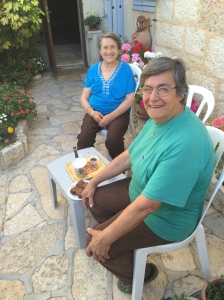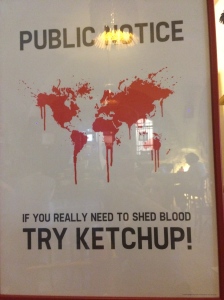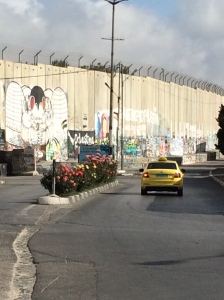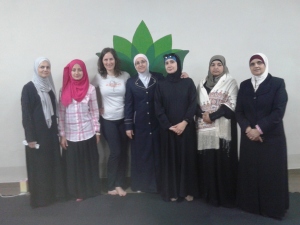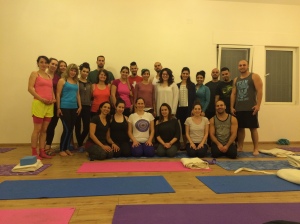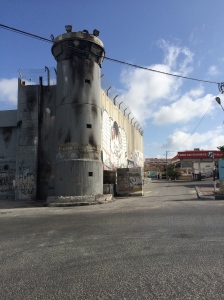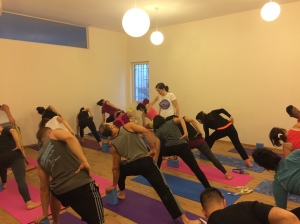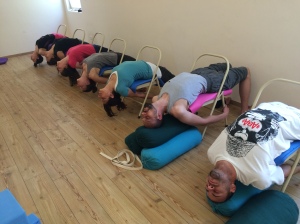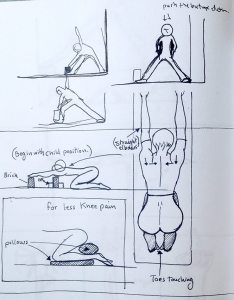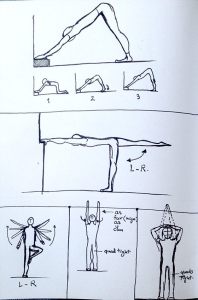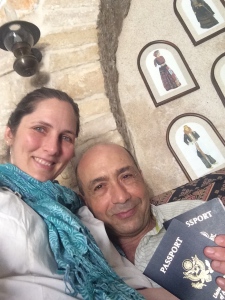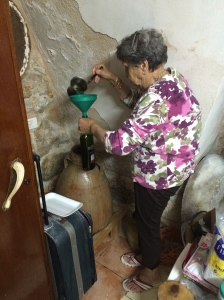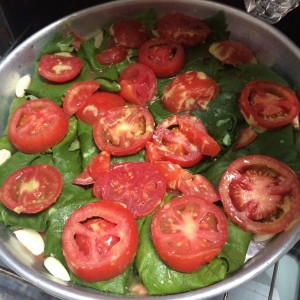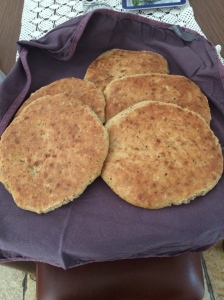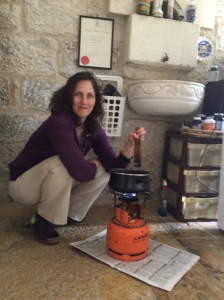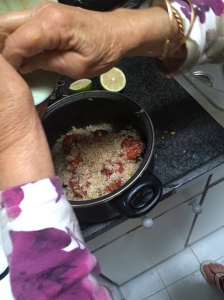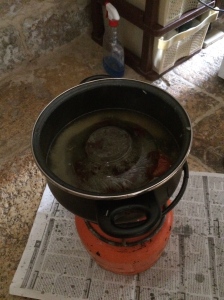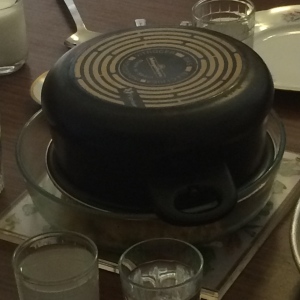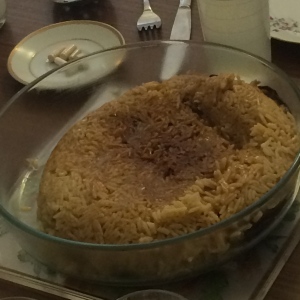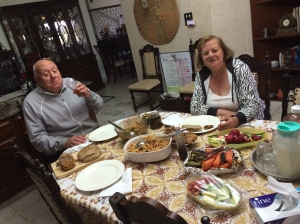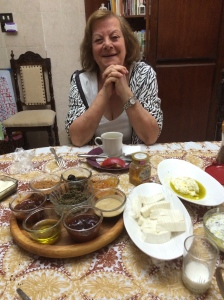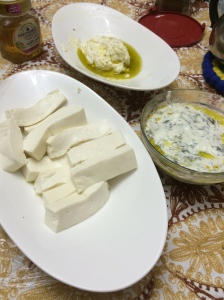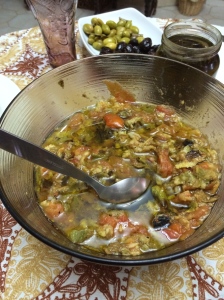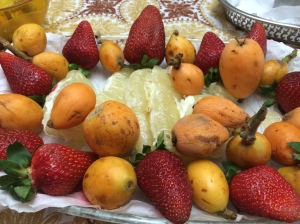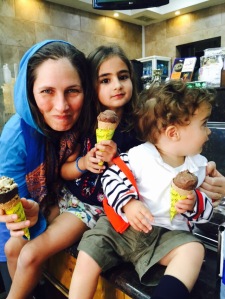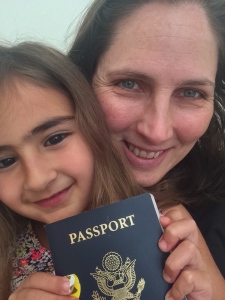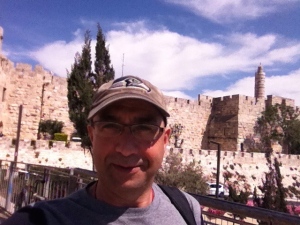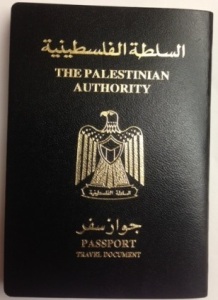Bashir and I were able to make it out of Palestine easy peasy. Once Bashir procurred the needed permits, it all went downhill from there. As in, we went down hill to the Dead Sea, past the checkpoints, past the Bedouin who are about to be forceably relocated from their homes, past Jericho the oldest city in the world (10,000 years old) and then into the border crossing to Jordan.
We spent a night in Jordan, and had an easy flight out to Turkey. We have spent the last week in Turkey and Greece soaking in the sun.
But of course my heart is there in the Levant. My heart never fully returns home to California. A part of my heart always stays behind. It stays with the sunrise in Jordan, hanging out there with the moon in the dry desert sky. It stays in the call of the muzzein beckoning the faithful to prayer. It stays in the fresh za’attar, the bread of Abu Fouad, the morning cups of coffee with my hamati Mary and her friends. These parts of my heart stay here even when I physically leave, because it is here that I feel alive, free and yet connected on a soul level.
Every trip to Palestine is unique in its own way. This trip, my 5th, was a return after one year. So, in some ways it felt like an immediate return to a land I love. I am no longer a tourist or casual observer here. I am married to a Palestinian man and now have Palestinian family. I also have my own personal relationship with the region that runs at a much deeper level.
I cannot say exactly why every trip to Palestine is important to me. But it is. Part of the reason is that these trips are always a spiritual pilgrimage. The definition of a pilgrimage varies, but it always includes a trip of of spiritual significance. A pilgrimage usually involves supplication and internal reflection for specific spiritual purposes. While yoga is not a religion, to shares the religious value of embarking on path even when that path is difficult. My time in the Middle East always has a pattern that gets me out of the mundane tasks and into the important aspects of pilgrimage: prayerful activities, self-reflection, and communion toward my spiritual self.
This part of the Middle East has been the site of pilgrimage for millennium. It is, after all, the Holy Land. The idea of the Holy Land is that it is a spiritual vortex, a place where the line between heaven and earth is much more porous, where the divisions between us and ourselves are much thinner. Many people come to live in this place out of spiritual beliefs. But the yamas and niyamas are missing these days in the Holy Land. Instead, their rivals are here in full force: anger, violence, misunderstanding and oppression that is experienced by all people on all sides, in varying degrees.
The Israeli government has, in many ways, made the concept of spiritual pilgrimage a modern-day farce. Tourists come to the Holy Land, hoping for some sort of a deeper connection to themselves by visiting the important sites. Unfortunately, most tours to the Holy Land these days herd people on and off buses before they have a chance to meet any locals, much less commune with them. More time is spent in stores then in prayer or self-reflection. Even the tours that are marketed as spiritual pilgrimage focus on consumerism and materialism, separating visitors from the locals and taking them to places that have been set up as modern day replicas rather than actually bringing people to the original holy sites.
I have always tried to be different kind of a tourist. I have visited the Holy Cities of the world, Benares, Rome. Bodhgaya in search of a connection to something both within me, higher then myself and yet universal. I walk the streets of Hebron, Silwan, and Bethlehem in the same way. I talk to as many locals as I can. I go to the churches, the mosques, the places of prayer that are still alive with living parishioners. I engage in volunteer activities. It is important to be a witness when you are on a pilgrimage, to be in communion with others.
Traveling abroad is one way that we can find our own spiritual selves because we are forced to explore the yamas and niyamas in new and unfamiliar ways. One place where this is discussed in the Kairos Document, a document written about spiritual tourism by Palestinian Christians. Though what I am talking about it shared by all spiritual seekers of all kinds. What I am talking about is a connection to my soul. A part of my soul is always here in Palestine. This place with Jerusalem at its center has been the navel of spiritual thought for millennium. And as a yogi, I am part of this.
Always here, I get great nourishment out of my communion with others, my time at the spiritual sights, and my personal yoga practice practice. I get time to walk my soul’s path.
A part of my soul’s path has to witness the suffering of the Palestinian people, to understand the causes that underlie this suffering because it does relate to the suffering of all people. We all read the papers and have some general notion that there is a problem between Israelis and Palestinians. But how many Americans actually understand what is actually happening here? And why it is happening here?
I have not done an adequate job at explaining what I have seen, because it would just sound trite and not do an adequate job at providing justice to those who shared their stories with me. You have to come and see the wall for yourself! You have to meet people on both sides of the wall and understand their stories. I have never wanted to be a writer, there are many people who are more articulate then me about the conditions here. I recommend you subscribe to sources like +972 Magazine for getting the real scoop.
One thing that I can do is encourage all of my readers to come and visit. See this amazing place for yourself!
What else can I do to support the Palestinian cause?
(excerpt from the Kairos Document)
* Pray for justice in the region.
* Support our appeals by distributing and sharing them with your own churches, congregations and dioceses to inform and educate your sisters and brothers about the situation of your Palestinian brethren living under Israeli occupation.
* Send letters of solidarity and support for justice in Palestine/Israel to the Israeli embassies in your own country. For further information, see: www.allembassies.com/israeli_embassies.htm.
* Come and see. We pledge to share the truth of our reality with you, receiving you as pilgrims coming to pray; carrying a message of peace, love and reconciliation. You will know the facts and the people of this land, Palestinians and Israelis alike (Kairos Document 6.2).
* Raise awareness about the root causes of the conflict, the rights of Palestinians, and the need to build a right-based political vision for peace-making. Study and educate others about Israel’s system of occupation which prevents the self-determination of the Palestinian people and constitutes the root cause of Israel’s systematic and protracted policy of forcible population transfer; likewise, seek to correct erroneous and prejudicial misconceptions of the Palestinian reality.
* Encourage your community to engage in concrete measures of solidarity with the Palestinian people and in concrete initiatives toward peace with justice. Join the global Boycott, Divestment and Sanctions Campaign (BDS) and undertake political measures that put pressure on Israel and other decision-makers until they respect their legal obligations to the Palestinian people, including the refugees. Likewise, urge communities in which you participate (church-related, business-related, academic or otherwise) to support the BDS campaign by divesting from companies that directly or indirectly support the illegal Israeli Occupation.
* Expand community-led advocacy work that intensifies public pressure toward Israel’s accountability to international law. Churches, church-related organizations and civil society, particularly human rights organizations and legal experts, should continue efforts toward investigating and prosecuting Israeli perpetrators of international crimes and other complicit individuals/institutions. Promote the application of universal legal principles and best practice to foster robust mechanisms that will bring Israel into compliance with international law.
* Promote accountability of Israeli suspects of international crimes in domestic courts. States parties to the Fourth Geneva Convention have a legal obligation to investigate and prosecute perpetrators of war crimes in the territory under their jurisdiction.
